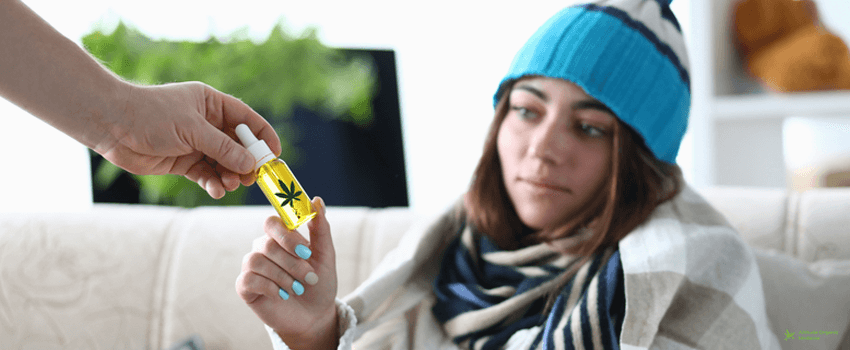One of the numerous chemicals contained in cannabis is CBD (cannabidiol). In recent years, CBD-infused products have been gaining popularity. It can now be found in different products, from CBD-infused pillows to chewable vitamins to post-workout smoothies. Its increasing marketability may lead people like you to wonder whether CBD addiction is possible because it comes from the same plant as marijuana, which may be addictive, especially when taken heavily and in high amounts.
CBD’s rising popularity has been spurred partly by the compound’s alleged wide array of health benefits. However, some people are hesitant to take such medicines because they believe CBD has the same potential for addiction as cannabis.
Today, we will address if CBD addiction is a cause for concern. We will also discuss some of the other probable CBD-related issues.
Is CBD Addictive?
A compulsive drive to use a substance and an inability to quit using it despite adverse effects is classified as drug addiction.
Substances that cause dependency and addiction influence the brain’s pleasure regions, causing people to need to ingest a substance to prevent withdrawal symptoms. In many circumstances, people may need to consume more and more medication to maintain the same euphoric sensations they first felt.
Tetrahydrocannabinol (THC) is the psychoactive ingredient in cannabis that causes marijuana high. It enters the circulation and connects to the endocannabinoid receptors found in brain regions related to pleasure, movement, memory, and thinking when delivered.
A 2017 research published in the Journal of Drug and Alcohol Dependence shows that CBD has the same risk for addiction as a placebo tablet. According to studies, 70% of CBD products contain much more THC than their labels indicate. However, it is crucial to remember that many CBD products may include trace amounts of THC. According to federal law, THC levels in hemp-derived CBD products must be less than 0.3%.
THC, as opposed to CBD, is addictive. According to research, people can acquire a tolerance to THC and experience withdrawal symptoms. On the other hand, CBD withdrawal is unlikely to happen.
While cannabidiol interacts with the body’s endocannabinoid system, it lacks the intoxicating characteristics of THC. According to research, it has a favorable safety profile and is well tolerated at dosages ranging from 600 mg to 1,500 mg. CBD, unlike THC (tetrahydrocannabinol), has no psychotropic effects. Unlike marijuana, which can lead to addiction, current evidence indicates that cannabidiol addiction is less likely to occur.
According to the World Health Organization, CBD has no consequences that suggest misuse or dependence in humans. There is no evidence of public health risks linked with pure CBD to date.
CBD and Addiction: Treatment of Dependency
A study showed that CBD might be beneficial in treating drug addiction and addictive behavior. For example, while research on CBD in treating cocaine and methamphetamine addiction is currently limited, preliminary studies have revealed that it shows potential.
CBD was discovered to have therapeutic benefits in treating cocaine, opiate, and psychostimulant addiction in a 2015 evaluation of existing preclinical and clinical data. Evidence also suggested that it might help in the treatment of cigarette and cannabis addiction.
Cannabidiol may help lower drug cravings, paranoia, impulsivity, and withdrawal symptoms linked with crack cocaine addiction, according to 2019 research. While encouraging, further study is required to understand how CBD may be used to treat drug-use problems.
CBD’s Effects
CBD does not have psychotropic characteristics, but it has several other impacts. Many people are interested in its possible influence on mental health issues, such as anxiety and depression.
Aside from mental health advantages, a study suggests that CBD may be useful for pain relief, nausea relief, and inflammation treatment. According to the World Health Organization, CBD may also be beneficial for seizures due to epilepsy and related conditions.
Some of the potential applications are given below.
Seizures
CBD has been shown in studies to help lessen seizures caused by epilepsy. A 2018 research on adolescents and adults diagnosed with treatment-resistant epilepsy discovered that using CBD reduced the frequency and severity of seizures.
Epidiolex, a CBD solution, was authorized by the FDA in 2018 to treat uncommon, severe types of epilepsy.
Anxiety
CBD may also be beneficial in reducing anxiety symptoms, according to research. Cannabidiol, for example, was found to be effective in lowering symptoms of generalized anxiety disorder (GAD), panic disorder, post-traumatic stress disorder (PTSD), and social anxiety disorder.
Depression
CBD may also be helpful in the treatment of depression, according to research. Based on the findings of one study, CBD alters how the brain responds to serotonin, which may have an antidepressant impact.
What the Research Showed
While CBD addiction appears to be unlikely, one large-scale evaluation concluded that there was insufficient evidence to support the use of CBD as a therapy for mental health disorders. This is not to say that CBD cannot be beneficial. More research is needed to identify what CBD can cure when it is most effective, and what amount patients should take.
Other Concerns and Side Effects
According to current data, CBD consumption does not lead to addiction and may have various health advantages. However, knowing that CBD may have inevitable unintended consequences is vital.
Some of the potential adverse effects of CBD usage include:
- Anxiety
- Appetite Changes
- Dizziness
- Interactions Between Medications
- Drowsiness
- Mouth Dryness
- Gastrointestinal Issues
- Mood Swings
- Nausea
According to the National Center for Complementary and Integrative Health, CBD may be detrimental to certain people. Epidiolex usage has been associated with liver issues and medication interactions in certain studies.
While such concerns may be controlled when taking a prescribed drug under the supervision of a doctor, self-administered CBD may have the same negative consequences, mainly because it can be challenging to identify how much CBD certain products genuinely contain.
THC levels in CBD products may be greater than stated on the label. This can be concerning if you are trying to avoid THC.
Key Takeaway
There’s no concrete evidence that indicates that CBD addiction is highly likely to happen to its users. When consumed responsibly, it’s considered safe, and the potential benefits it offers are why so many people are flocking to the latest CBD products on the market. Of course, it’s crucial to note that studies are still ongoing, but what we know thus far is promising.
Specific adverse effects may unexpectedly arise when taking the substance; you should see your doctor about any potential interactions with your existing medications.
Get High-Quality CBD at Altitude Organic Cannabis
If you’re looking to start using CBD, make sure to buy from Altitude Organic Cannabis. Our dispensary in Dillon, CO, houses the highest-quality CBD available for recreational and medical use.
As CBD experts, we stay current on CBD industry developments to give top-tier products at all times. If you have any questions, don’t hesitate to get in touch with us. Come visit our dispensary right away!


